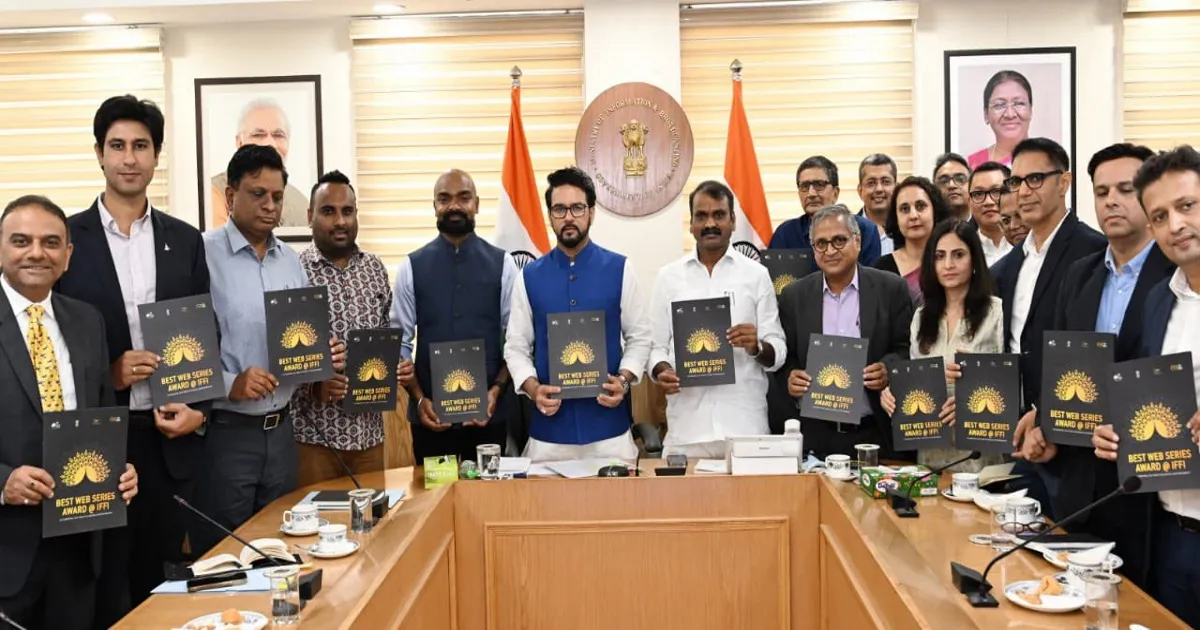During the meeting with representatives of OTT platforms, Union Minister Anurag Thakur conveyed the government’s stance on maintaining cultural sensitivity and ensuring that Indian culture and society are not insulted or demeaned through content on these platforms. Thakur stressed the need for a responsible approach to artistic freedom, where creative expression should not be used as a cover to propagate vulgarity, hate speech, or biased ideologies.
Key points discussed during the meeting included:
1. Cultural Sensitivity: Thakur drew attention to the need for OTT platforms to avoid negative portrayals of Indian beliefs and traditions, as well as the overtly Western influences in content.
2. Criminal Penalties: Discussions revolved around imposing criminal penalties for any infractions made by OTT platforms in terms of content that may be deemed inappropriate or offensive.
3. Grievance Resolution Process: The current grievance resolution process was discussed to strengthen it further, ensuring that user complaints and concerns are addressed effectively.
4. Accuracy of India’s Map Representation: Thakur highlighted the issue of incorrect map representation of India in certain content and urged the need for accuracy in this regard.
5. Digital Piracy and Intellectual Property Rights: Measures to combat digital piracy and protect intellectual property rights were explored during the meeting, with a focus on taking action against rogue websites engaged in unauthorized content distribution.
6. Code of Ethics: The representatives of OTT platforms discussed the importance of striking a balance between creative freedom and responsible content. The idea of implementing a code of ethics to guide content creation and dissemination was explored.
7. Age-Based Verification and Parental Control: The need for age-based verification and parental control features on OTT platforms was emphasized to ensure that age-appropriate content is accessible to viewers.
8. Content Descriptors: OTT platforms were encouraged to use content descriptors to provide clear information about the nature of the content, enabling viewers to make informed choices.

One of the main concerns discussed was the need to strike a balance between creative freedom and responsible content creation. Thakur urged the OTT platforms to refrain from negative portrayals of Indian beliefs and traditions while also addressing the issue of content heavily influenced by Western themes.
The meeting also delved into the importance of enhancing the grievance resolution process to ensure that user complaints and concerns are promptly addressed. Additionally, there were discussions on the potential imposition of criminal penalties for infractions made by OTT platforms that violate content regulations.
The accuracy of India’s map representation in content also came under scrutiny during the meeting. Thakur emphasized the need for accuracy and adherence to official boundaries while representing the country in films and series.
Regarding content creation, the representatives of OTT platforms explored the idea of implementing a code of ethics. This code would serve as a guideline to ensure responsible content production and distribution, with a focus on maintaining cultural sensitivity and avoiding offensive or inappropriate material.
To cater to diverse audiences, the meeting emphasized incorporating age-based verification and parental control features on OTT platforms. This would enable viewers to access age-appropriate content, ensuring that children are not exposed to content unsuitable for their age group.
Digital piracy and the protection of intellectual property rights were also discussed as significant concerns. Thakur highlighted the government’s intent to take action against rogue websites engaged in unauthorized content distribution, which undermines the rights of content creators and platforms.
Overall, the meeting with OTT representatives aimed to address the evolving landscape of content consumption and distribution. The discussions reflected the government’s commitment to promoting responsible content creation and maintaining cultural integrity, while also seeking to protect the interests of both content creators and viewers. The upcoming Cinematograph Bill, expected to be discussed and passed during the Monsoon Session of Parliament, is seen as a step towards further enhancing content regulation and combating digital piracy in the OTT industry.



